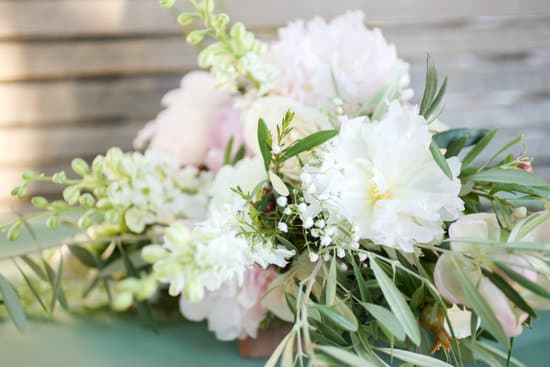Planning a wedding involves a myriad of details and responsibilities, with each family playing a significant role in the celebration. One key question that often arises is: what is the groom’s family responsible for in a wedding? Understanding these roles and traditions is essential to ensure a smooth and harmonious planning process. By recognizing and fulfilling their specific duties, both families can contribute to creating a memorable and joyous occasion for the couple.
In various cultures and religions, the groom’s family has distinct roles and responsibilities when it comes to weddings. These traditions can range from financial contributions to hosting certain events like the rehearsal dinner. It is important to understand how these customs vary, as they add richness and diversity to the overall wedding experience. By respecting and honoring these traditions, families can come together to create a meaningful and culturally rich celebration that reflects their values and beliefs.
Aside from traditional roles, the groom’s family often takes on financial responsibilities related to the wedding. From covering specific expenses like transportation or accommodations for out-of-town guests to contributing towards overall wedding costs, understanding these financial obligations can help manage expectations and budget effectively. Additionally, involvement in tasks such as guest list creation, ceremony planning, and emotional support for the couple further highlight the importance of the groom’s family throughout the wedding planning process.
Groom’s Family Traditions
In many cultures and religions, the groom’s family plays a significant role in weddings by upholding certain traditions and responsibilities. These customs not only highlight the importance of family involvement but also help to create a sense of unity and support during this special occasion. Understanding what the groom’s family is traditionally responsible for in a wedding can lead to a smoother planning process and a more meaningful celebration overall.
Here are some traditional roles and responsibilities of the groom’s family in weddings:
- Providing financial contributions: In many cases, the groom’s family is expected to make financial contributions to cover various wedding expenses. This may include costs such as the venue rental, catering, decorations, and other essential elements of the celebration. By contributing financially, the groom’s family shows their support for the couple as they start their new life together.
- Assisting with guest list and invitations: The groom’s family often plays a role in creating the guest list for the wedding. They may also take responsibility for sending out invitations and tracking RSVPs. It is essential for both families to collaborate on this aspect of wedding planning to ensure that all loved ones are included and properly informed about the event.
- Participating in ceremony planning: From selecting the venue to choosing an officiant, the groom’s family is typically involved in various aspects of ceremony planning. They may offer suggestions or preferences based on their cultural or religious background, ensuring that the ceremony reflects their traditions and beliefs. This collaborative effort helps to create a memorable and meaningful wedding ceremony for everyone involved.
Overall, understanding these traditional roles and responsibilities can help both families navigate through wedding planning with respect, cooperation, and love. By upholding these customs, the groom’s family contributes not only to the success of the event but also to the expression of familial bonds that will last long after the celebration has ended.
Financial Contributions
The financial contributions of the groom’s family play a significant role in weddings, often helping to alleviate some of the costs associated with the event. Traditionally, the groom’s family may cover specific expenses such as the rehearsal dinner, groom’s attire, and transportation for immediate family members.
In some cultures, it is customary for the groom’s family to contribute a certain amount towards the overall wedding budget or to cover specific items like the wedding cake or photography services. Understanding what the groom’s family is responsible for financially can help prevent misunderstandings and ensure a smooth planning process.
In addition to covering various expenses, the groom’s family may also play a crucial role in budgeting and financial planning for the wedding. They might assist in setting a realistic budget, tracking expenditures, and making decisions on where to allocate funds.
Communication between both families regarding financial matters is essential to avoid any conflicts or misunderstandings down the line. By clearly outlining financial responsibilities from the beginning, both families can work together harmoniously to create a memorable and meaningful wedding celebration.
It is important to note that the extent of financial contributions from the groom’s family can vary depending on cultural traditions, personal preferences, and individual circumstances. Some families may choose to adhere strictly to traditional customs when it comes to financial responsibilities, while others may opt for a more modern approach that involves shared financial contributions between both families.
Regardless of how expenses are divided, open communication and mutual respect between all parties involved are key in ensuring a successful and enjoyable wedding planning experience.
| Financial Contributions | Groom’s Family Responsibilities |
|---|---|
| Covering expenses such as rehearsal dinner and transportation | Financial Planning |
| Budgeting assistance and decision-making on expenditure allocations | Cultural Traditions Impact |
Guest List and Invitations
The groom’s family holds an essential role in the wedding planning process, including the creation of the guest list and handling invitations. Traditionally, it is customary for the groom’s family to be involved in determining who will be invited to the wedding. This may include extended family members, close friends, and other important individuals in the couple’s life.
When deciding on the guest list, it is crucial for the groom’s family to communicate closely with the couple to ensure that all necessary parties are included. They should also consider cultural or religious customs that may influence the invitees. Moreover, in some cases, the groom’s family may take on responsibilities related to sending out invitations and tracking RSVPs. This can involve managing responses, keeping track of dietary restrictions or preferences, and answering any questions guests may have.
In addition to managing the guest list and invitations, the groom’s family plays a significant role in hospitality during the wedding festivities. They contribute by ensuring that guests feel welcome and comfortable throughout their stay. This includes arranging accommodations for out-of-town guests and coordinating transportation to and from the venue. By providing these logistical conveniences, the groom’s family helps create a seamless and enjoyable experience for everyone involved in celebrating this special occasion.
| Groom’s Family Responsibilities in Wedding | Guest List Duties |
|---|---|
| Creating guest list | Tracking RSVPs |
| Communicating with couple about invitees | Managing responses |
| Arranging accommodations for out-of-town guests | Coordinating transportation to venue |
Ceremony Planning
Role of the Groom’s Family
The groom’s family plays a crucial role in the planning of the wedding ceremony. Traditionally, they are responsible for contributing ideas and making decisions regarding the venue, officiant, and other ceremony details. In many cultures and religions, the groom’s family may have specific customs or traditions that they need to incorporate into the ceremony, adding an extra layer of significance to their involvement.
Contributions to Ceremony Selection
When it comes to choosing the venue for the wedding ceremony, the groom’s family often offers input based on their preferences and budget. They may help scout potential locations, negotiate contracts with vendors, and ensure that all cultural or religious requirements are met. Additionally, the officiant selection is typically a joint decision between both families, with the groom’s family providing guidance on finding someone who aligns with their beliefs and values.
Attention to Detail
In addition to selecting the venue and officiant, the groom’s family may also assist in planning other intricate details of the ceremony such as music selections, readings, rituals, and any special considerations that need to be taken into account. By working closely with the bride’s family and the couple themselves, they help create a meaningful and memorable ceremony that reflects everyone’s wishes.
This collaborative effort ensures that all aspects of the wedding ceremony come together seamlessly on the big day.
Rehearsal Dinner
The rehearsal dinner is considered an essential part of the wedding celebrations, offering a more intimate setting for close family and friends to come together before the big day. In many cultures, the groom’s family traditionally takes on the responsibility of planning and hosting this special event. It serves as a time for both families to bond and relax before the hectic wedding day.
Planning and Hosting
Typically, the groom’s family is in charge of organizing the rehearsal dinner. This includes selecting a venue, creating a guest list, and coordinating with caterers or restaurants for the meal. The dinner can range from a casual backyard barbecue to a formal sit-down affair at a restaurant or banquet hall, depending on the preferences of the couple and their families.
Etiquette and Traditions
There are certain etiquette guidelines to keep in mind when hosting a rehearsal dinner. The groom’s family should ensure that all members of the immediate families, bridal party, and out-of-town guests are invited.
It is also customary for the groom’s family to give thank-you speeches during the dinner, expressing gratitude to everyone involved in making the wedding possible. Additionally, some families incorporate cultural or religious traditions into the rehearsal dinner festivities to add a personal touch to the event.
As such an important pre-wedding gathering, the rehearsal dinner provides an opportunity for loved ones to share stories, laughter, and well-wishes with the soon-to-be-married couple. It sets a warm and welcoming tone for what lies ahead on the wedding day and helps create lasting memories for all those involved.
The groom’s family plays a vital role in ensuring that this event runs smoothly and leaves a positive impression on guests as they look forward to witnessing the union of two families coming together.
Accommodations and Transportation
The groom’s family plays a significant role in arranging accommodations for out-of-town guests attending the wedding. This responsibility involves identifying suitable lodging options for guests, whether it be hotels, rental properties, or even coordinating with local bed and breakfast establishments. It is essential to consider the proximity of these accommodations to the wedding venue and provide guests with all necessary information regarding booking procedures and any special rates that may be available.
Furthermore, the groom’s family is also tasked with coordinating transportation for guests to and from the wedding venue. This includes arranging shuttle services, providing information on public transportation options, or organizing carpooling among guests. Ensuring that out-of-town attendees have convenient and reliable transportation arrangements not only adds to their overall experience but also demonstrates thoughtfulness and hospitality on behalf of the groom’s family.
In many cultures and traditions, accommodations and transportation are considered key responsibilities of the groom’s family in a wedding. By successfully managing these aspects, the groom’s family contributes to creating a seamless and enjoyable experience for all guests attending the celebration. Additionally, by providing support in this area, they showcase their dedication to ensuring that loved ones are accommodated and cared for throughout the wedding festivities.
Emotional Support
When it comes to weddings, the groom’s family plays a crucial role in providing emotional support throughout the wedding planning process and on the big day itself. This support is essential for alleviating any stress or anxieties that the couple may experience as they prepare for their special day. Here are some ways in which the groom’s family can offer emotional support:
- Listening and being understanding: One of the most important ways for the groom’s family to provide emotional support is simply by listening to the couple and being understanding of their needs and wishes. This open line of communication can help create a supportive environment.
- Offering guidance and advice: With their life experience, the groom’s family can offer valuable guidance and advice to help navigate any challenges that may arise during wedding planning. Whether it’s making important decisions or resolving conflicts, their input can be incredibly helpful.
- Participating in pre-wedding events: By actively participating in pre-wedding events such as bridal showers, bachelor parties, and other celebrations, the groom’s family shows their support for the couple’s union. These moments provide opportunities for bonding and creating lasting memories.
In addition to these specific actions, it is also important for the groom’s family to simply be present and available for the couple whenever they need a listening ear or a shoulder to lean on. Their unwavering support can make all the difference in ensuring that the wedding planning process is as smooth and enjoyable as possible.
Ultimately, offering emotional support is not only a responsibility but also a privilege for the groom’s family. By standing by their loved ones during this significant milestone, they contribute to creating a foundation of love, unity, and strength that will continue long after the wedding festivities have ended.
Conclusion
In conclusion, it is evident that the groom’s family plays a significant role in a wedding, with various responsibilities that contribute to the overall success of the event. Traditionally, the groom’s family has specific roles and duties based on cultural and religious practices. These responsibilities can include financial contributions, assistance in guest list creation and invitations, involvement in ceremony planning, hosting the rehearsal dinner, arranging accommodations for out-of-town guests, and providing emotional support throughout the process.
Understanding what the groom’s family is responsible for in a wedding is crucial for ensuring smooth coordination between both families involved. By recognizing and respecting these traditions and expectations, couples can help maintain harmony and unity during the wedding planning journey. From financial support to emotional assistance, the groom’s family plays a vital part in creating a memorable and enjoyable wedding experience for everyone involved.
Ultimately, while weddings are about celebrating love between two individuals, they also serve as an opportunity to bring families together. The groom’s family’s contributions go beyond just logistics; they symbolize support, love, and unity during a joyous occasion. By embracing their responsibilities with enthusiasm and commitment, the groom’s family can truly enhance the overall wedding experience for all those involved.
Frequently Asked Questions
What Should the Mother of the Groom Not Do?
The mother of the groom should avoid overshadowing the bride or taking over the wedding planning process. It’s important for her not to wear white or any outfit that may clash with the bride’s attire.
What Is the Groom’s Mother Responsible For?
The groom’s mother has various responsibilities, including helping with guest lists, assisting with seating arrangements, and coordinating with the mother of the bride on certain aspects of the wedding. She is also typically involved in organizing and hosting pre-wedding events like the rehearsal dinner.
What Does the Mother of the Groom Give the Bride?
Traditionally, the mother of the groom gives a meaningful and thoughtful gift to the bride as a symbol of welcoming her into the family. This gift can vary from sentimental items like jewelry or heirlooms to more practical gifts like household items for their new life together.
The gift is a way to show love and support for the couple on their special day.

I have been involved in marriages for over 20 years helping couples and singles understand more about them.





